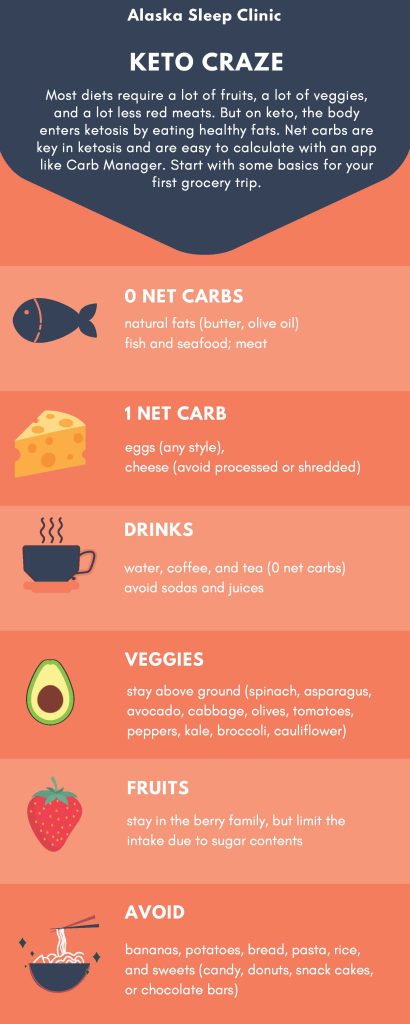
Studies from National Institutes of Health show ketogenic diets can drastically lower blood sugar and improve insulin resistance, helping to improve diabetes and pre-diabetes.
It can also improve heart disease including the lowering of blood pressure, cholesterol, and blood sugar. And keto is being used—and increasingly studied—as a dietary therapy for epilepsy, cancer, and neurodegenerative diseases such as Alzheimer’s and Parkinson’s.
#1 What is a Keto Diet?
The Keto diet is a very low-carb, high-fat diet. It helps to lose weight quicker.
#2 So I can’t eat bread. But can I eat cheese or bacon, or dark chocolate?
Yes! Those are Keto foods. And there are plenty of more.
#3 How can carb reduction help me lose weight? I thought fatty foods are bad.
When you eat carbs, your body uses carbs to maintain its functions.
When you reduce carbs, your body maintains energy balance by shifting its fuel source from carbs to fats. This natural shift is called ketosis.
#4 What is ketosis?
Ketosis is a natural metabolic state. It occurs when your body starts burning fat for fuel instead of using carbs. This leads to successful weight loss. For example, your arms and your belly get slimmer.
#5 Is ketosis safe? Does it have any negative health effects?
If you are breastfeeding, have diabetes, or are epileptic, consult your doctor before going on a ketogenic diet.
That being said, ketosis is generally safe for healthy people.
#6 So how do I reach ketosis?
Most people reach ketosis by following a keto diet meal plan. It usually takes up to 7 days of eating proper Keto dishes to get into ketosis.
#7 What is a Keto Diet meal plan?
A Keto Diet meal plan is a meal plan usually made by nutritionists to have 75% of fats, 20% of protein, and 5% of carbs.
#8 Why is the correct ratio of fat/protein/carbs important?
A correct reduction in carbs puts your body into ketosis. When this happens, your body starts efficiently burning fat for energy.
#9 Why is Keto different from other diets?
The Keto diet does not deprive you of tasty meals.
Deprivation of tasty foods is the main reason people fail to lose weight quickly and for good.
#10 What are the benefits of doing a Keto diet?
A Keto diet can cause healthy reductions in blood sugar and insulin levels and can reduce the risk of heart diseases and cancer.
#11 I heard ketosis could be dangerous. Is this true?
Keto beginners often confuse ketosis with ketoacidosis. Ketosis is natural, while ketoacidosis only occurs in people who have uncontrolled diabetes.
So ketoacidosis is dangerous; however, the ketosis on a keto diet is perfectly normal and healthy.
#12 How much weight can I lose in 28 days with a Keto Diet meal plan?
Find out how much weight you can lose with a custom Keto meal plan by taking our quick Keto quiz. We will take into consideration your lifestyle to give a precise number.
Of course like any health change and diet adjustment, the ketogenic diet is not for everyone. Starting with your physician is important to make sure keto is right for you.
If you have tried keto and still have not seen the benefits of a restful night’s sleep, the Alaska Sleep Clinic provides free consultations. The underlying issue may be apnea or another sleep condition which can be tested in an overnight study.











